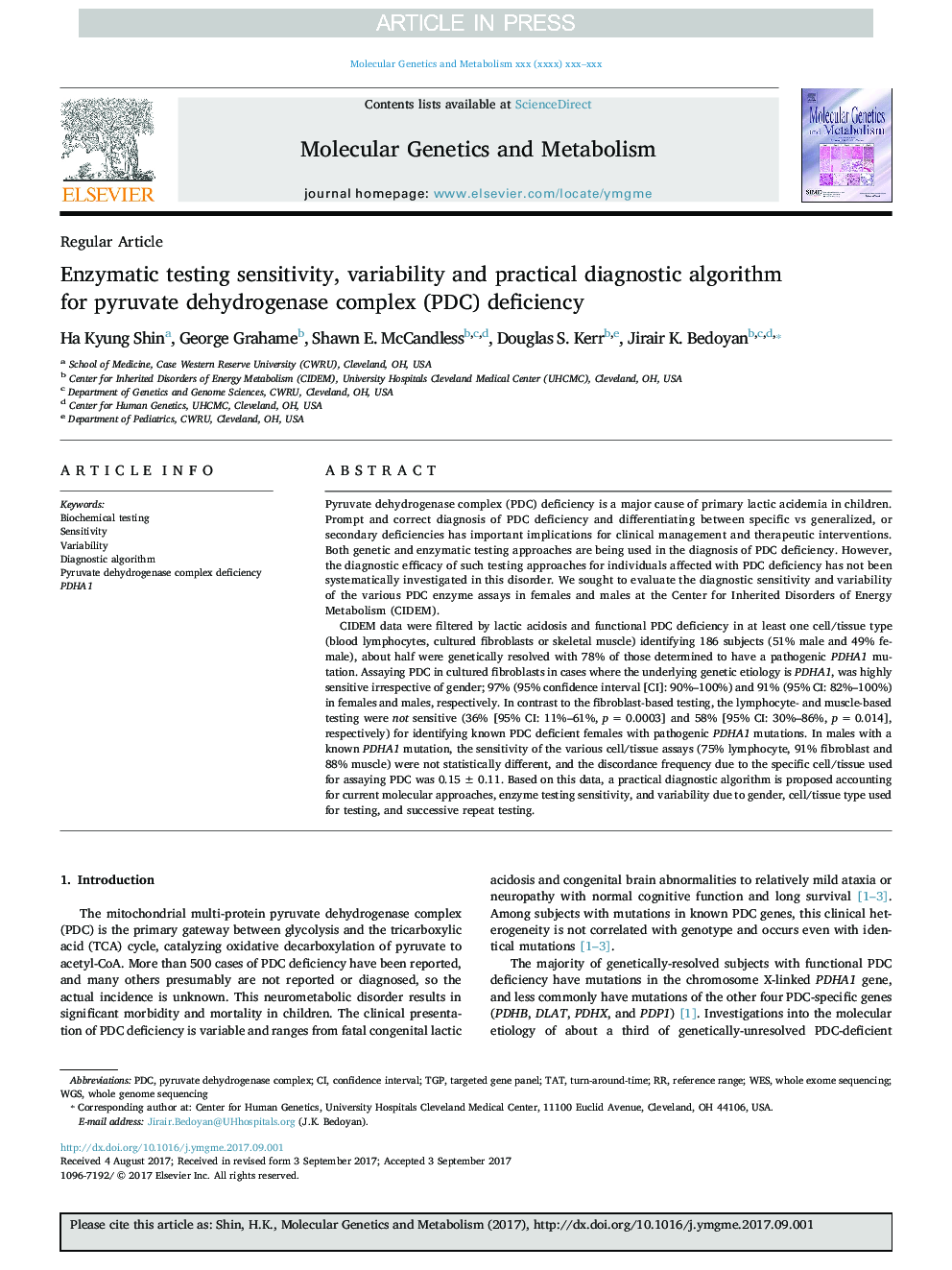| Article ID | Journal | Published Year | Pages | File Type |
|---|---|---|---|---|
| 8343663 | Molecular Genetics and Metabolism | 2017 | 6 Pages |
Abstract
CIDEM data were filtered by lactic acidosis and functional PDC deficiency in at least one cell/tissue type (blood lymphocytes, cultured fibroblasts or skeletal muscle) identifying 186 subjects (51% male and 49% female), about half were genetically resolved with 78% of those determined to have a pathogenic PDHA1 mutation. Assaying PDC in cultured fibroblasts in cases where the underlying genetic etiology is PDHA1, was highly sensitive irrespective of gender; 97% (95% confidence interval [CI]: 90%-100%) and 91% (95% CI: 82%-100%) in females and males, respectively. In contrast to the fibroblast-based testing, the lymphocyte- and muscle-based testing were not sensitive (36% [95% CI: 11%-61%, p = 0.0003] and 58% [95% CI: 30%-86%, p = 0.014], respectively) for identifying known PDC deficient females with pathogenic PDHA1 mutations. In males with a known PDHA1 mutation, the sensitivity of the various cell/tissue assays (75% lymphocyte, 91% fibroblast and 88% muscle) were not statistically different, and the discordance frequency due to the specific cell/tissue used for assaying PDC was 0.15 ± 0.11. Based on this data, a practical diagnostic algorithm is proposed accounting for current molecular approaches, enzyme testing sensitivity, and variability due to gender, cell/tissue type used for testing, and successive repeat testing.
Keywords
Related Topics
Life Sciences
Biochemistry, Genetics and Molecular Biology
Biochemistry
Authors
Ha Kyung Shin, George Grahame, Shawn E. McCandless, Douglas S. Kerr, Jirair K. Bedoyan,
